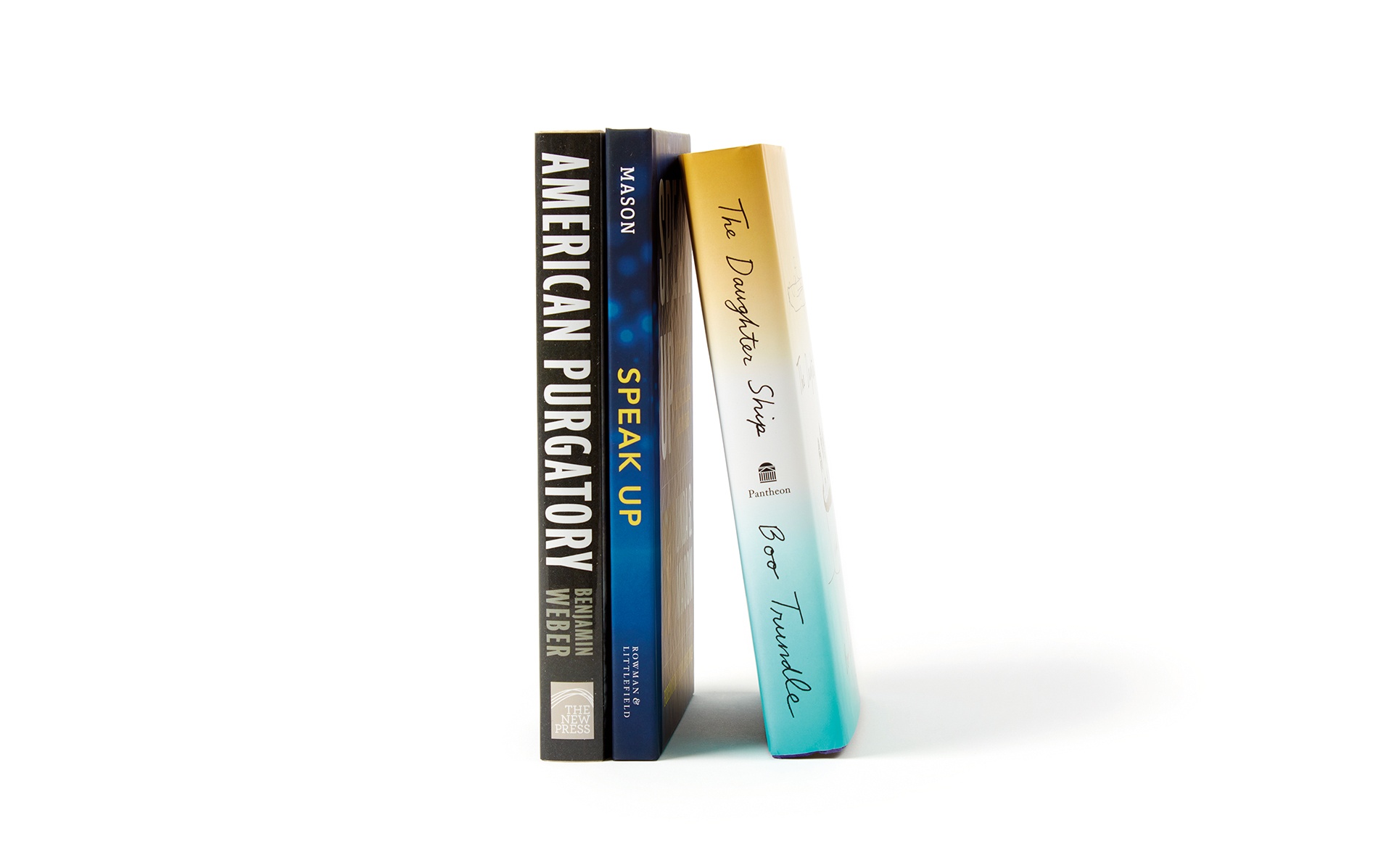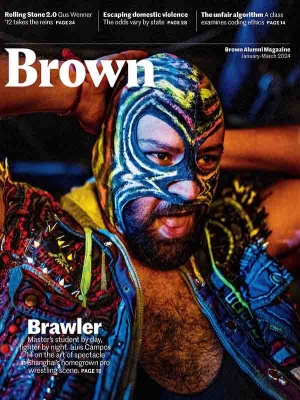The Daughter Ship by Boo Trundle ’89 (Pantheon)
In this debut you’ll meet Katherine Burns, who lives in the suburbs with her teenagers, Emily and Zack, and her largely absent husband, Phil. Katherine is circling the edge after growing up in a deeply dysfunctional family. She’s also fighting for narrative space with three warring inner voices—Truitt, Smooshed Bug, and Star—who, metaphorically speaking, all live in a World War II German U-Boat somewhere off the coast of Virginia. And there’s Katchie, Katherine’s childhood self, plus some dead Confederate ancestors, and everyone is jostling for airtime. The novel unfolds in tiny, many-voiced bursts, which can be disorienting as the author skips through time, but given a chance the ride is worthwhile.
American Purgatory: Prison Imperialism and the Rise of Mass Incarceration by Benjamin Weber ’08 MAT (The New Press)
Weber, a University of California Davis professor of African American studies, does a convincing job of confronting and considering our history of incarceration and how that has played a role in the expansion of American power. He details the ways that incarceration was used to control Native Americans and points out that Black chain gangs in the American south were not all that different from Black road gangs during the building of the Panama Canal. Weber also discusses the history of prison protests and argues that this country needs to grapple with its prison past, especially as the U.S. continues to export its model of incarceration around the globe.
Speak Up: Breaking the Glass Ceiling at CBS News by Linda Mason ’64 (Rowan & Littlefield)
Plenty of newsroom firsts in this memoir as Mason, who worked at CBS for 47 years, details her climb from a CBS Radio desk assistant in 1966 to being the first woman producer for The CBS Evening News with Walter Cronkite and finally senior vice president for news. While you’ll find lots of stories from the field, including what it was like interviewing a genial Fidel Castro in Cuba in 1996 with Dan Rather, Mason also writes about navigating all-male newsrooms, where she often faced harassment, and how she balanced being a mom and an executive producer. But her big three career tips are relatively simple, “Work hard, ask questions, and when the time is right, speak up.”





